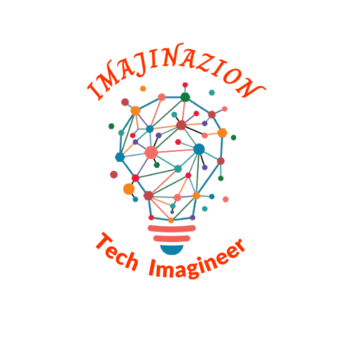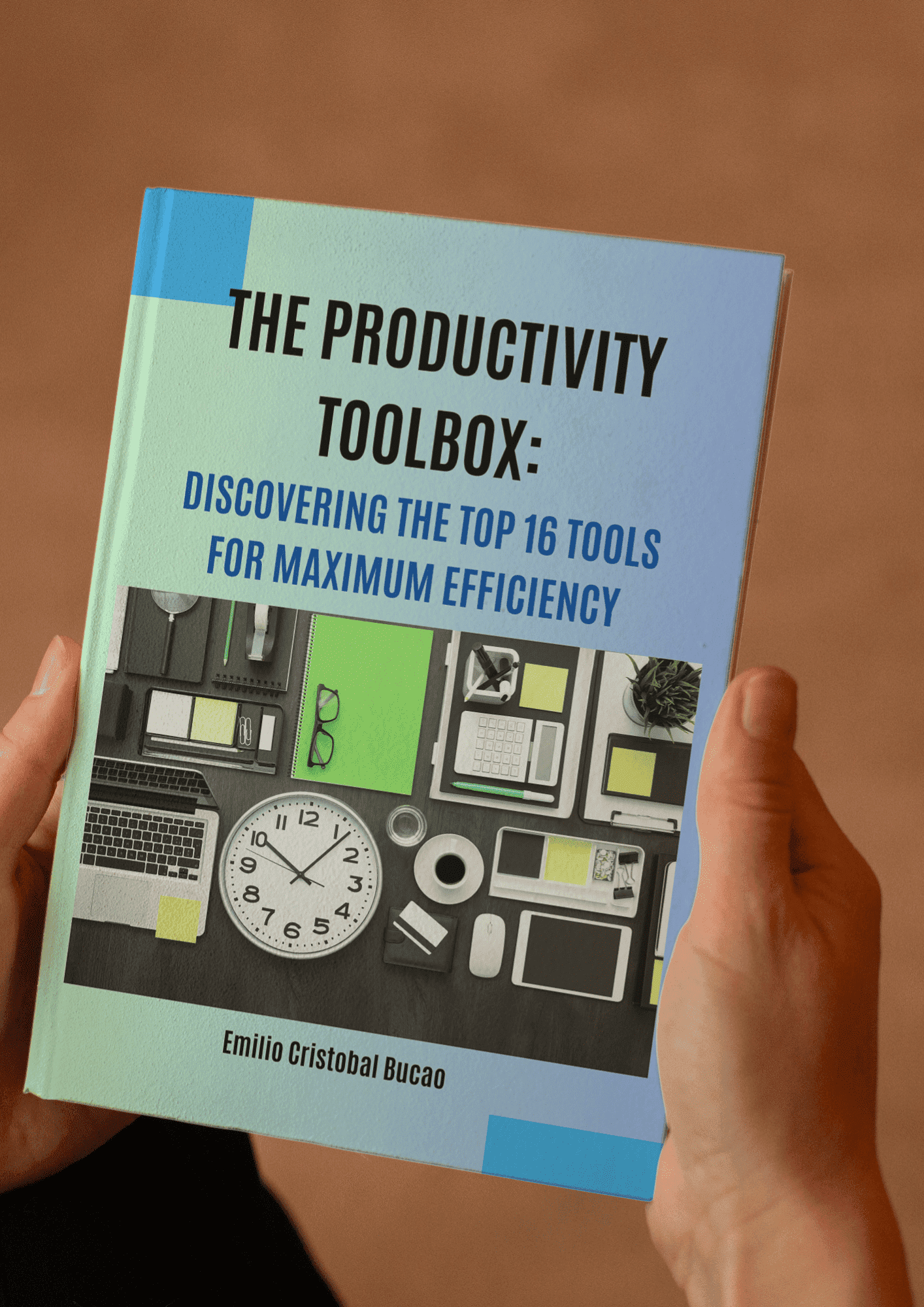11 Best Productivity Books To Boost Efficiency!
1. “Getting Things Done: The Art of Stress-Free Productivity: by David Allen
This great book is a transformative guide to managing tasks, projects, and information overload. Allen introduces the GTD methodology, which centers around capturing, clarifying, organizing, reviewing, and engaging with tasks and commitments. The book emphasizes the importance of externalizing and organizing all the information and tasks that occupy our minds, enabling us to achieve a state of mental clarity and focus.
Allen’s approach is rooted in the belief that stress and overwhelm stem from an inability to manage and process the numerous daily life responsibilities and inputs effectively. By implementing the GTD system, individuals can gain control over their commitments, reduce mental clutter, and experience a greater sense of calm and productivity. The book offers a practical guide for capturing ideas and tasks, clarifying their meaning and relevance, organizing them in a trusted system, and regularly reviewing and updating priorities.
“Getting Things Done” provides a comprehensive framework that can be adapted to the requirements and preferences of each reader. Using Allen’s ideas and methods, readers can build a strong foundation for managing their work and personal daily lives. This lets them focus on what matters and get things done more quickly and effectively. Ultimately, the book equips readers with the tools and mindset necessary to achieve stress-free productivity in a fast-paced world.
2. “Deep Work: Rules for Focused Success in a Distracted World” by Cal Newport
This fascinating book is a compelling exploration of the power of deep concentration and its impact on productivity and success. Newport argues that in today’s hyper-connected world filled with constant distractions, the ability to engage in deep, uninterrupted work is increasingly rare and valuable. He introduces the concept of deep work as a state of intense focus and cognitive engagement that allows individuals to produce high-quality work and achieve remarkable results.
Newport provides practical strategies and “rules” for cultivating deep work in one’s professional and personal life. He emphasizes the importance of minimizing shallow work and distractions like social media and constant email checking. He offers techniques for structuring one’s environment, setting boundaries, and developing rituals that foster deep work. The book also explores the value of solitude, concentration, and deliberate practice in honing one’s skills and achieving mastery in any field.
By embracing deep work, individuals can enhance their productivity, creativity, and ability to deliver exceptional value in their chosen endeavors. Newport’s insights challenge conventional notions of multitasking and constant connectivity, urging readers to prioritize focused, undistracted work periods to unlock their true potential. “Deep Work” serves as a roadmap for those seeking to thrive in an increasingly distracted world by harnessing the power of deep, concentrated work.
3. “The 4-Hour Workweek: Escape 9-5, Live Anywhere, and Join the New Rich” by Timothy Ferriss
This groundbreaking book challenges traditional notions of work and offers a blueprint for designing a life of freedom, flexibility, and increased productivity. Tim Ferriss shares his personal experiences and strategies for escaping the traditional 9-to-5 grind, replacing it with a lifestyle focused on efficiency, automation, and pursuing one’s passions. He advocates for leveraging technology, outsourcing tasks, and adopting a mindset of mini-retirements and “lifestyle design.”
Ferriss presents practical techniques for streamlining work processes, eliminating time-wasting activities, and achieving more with less effort. He delves into concepts such as outsourcing, delegation, and creating passive income streams to free up time and create a lifestyle that allows for greater autonomy and fulfillment. The book also explores strategies for effective time management, including the art of selective ignorance and prioritizing high-impact activities.
By following Ferriss’s advice, readers can gain the tools and mindset to create a work-life balance and personal fulfillment, focusing on activities that truly matter to them. While the title may suggest a four-hour workweek, Ferriss emphasizes pursuing meaningful and impactful work while maximizing free time and personal fulfillment. “The 4-Hour Workweek” offers a provocative and unconventional approach to work and life, inspiring readers to question societal norms and embrace a new paradigm of success and freedom.
4.”Atomic Habits: An Easy & Proven Way to Build Good Habits & Break Bad Ones” by James Clear
“Atomic Habits: An Easy & Proven Way to Build Good Habits & Break Bad Ones” by James Clear is a transformative guide that explores the power of small, incremental changes in building positive habits and breaking negative ones. Clear argues that the key to long-lasting behavioral change lies in focusing on the atomic level or the small actions and decisions we make daily. He presents a practical framework for habit formation, emphasizing the importance of clarity, consistency, and accountability.
Clear introduces the concept of habit stacking, which involves linking new habits to existing ones, making integrating them into daily routines easier. He also explores the role of the environment and how making small changes to our surroundings can significantly impact our habits. The book provides insights into the psychology of habits, including cues, cravings, and rewards, and offers strategies to make good habits attractive and bad habits unattractive.
By following Clear’s strategies and principles, readers can develop a clear roadmap for habit change and personal growth. The book emphasizes that the cumulative effect of small habits over time can lead to remarkable transformations in various aspects of life. “Atomic Habits” serves as a guide to help readers break free from unproductive patterns, optimize their daily routines, and create a life characterized by positive, intentional habits that align with their goals and values.
5. “Essentialism: The Disciplined Pursuit of Less” by Greg McKeown
“Essentialism: The Disciplined Pursuit of Less” by Greg McKeown is a thought-provoking book that advocates for pursuing essential tasks and eliminating non-essential distractions. McKeown argues that in a world filled with increasing options and demands, the key to success and fulfillment lies in simplifying and focusing on what truly matters. He introduces the concept of essentialism, which involves discerning the vital few from the trivial many and investing one’s time and energy accordingly.
McKeown provides practical strategies for prioritizing and making deliberate choices. He explores the importance of setting boundaries, saying “no” to non-essential commitments, and mastering the art of selective focus. The book encourages readers to evaluate their activities, obligations, and goals with a critical eye, enabling them to let go of non-essential tasks and make room for what truly aligns with their values and objectives.
By embracing essentialism, individuals can experience greater clarity, effectiveness, and satisfaction in their personal and professional lives. McKeown’s insights challenge the notion that busyness equates to productivity and encourages readers to adopt a disciplined approach to managing their time, energy, and attention. “Essentialism” offers a transformative perspective on living a more purposeful and meaningful life by intentionally focusing on the essential aspects that lead to more significant impact and fulfillment.
6. “The Power of Habit: Why We Do What We Do in Life and Business” by Charles Duhigg”
“The Power of Habit: Why We Do What We Do in Life and Business” by Charles Duhigg, a New York Times best-seller, explores the science of habits and their profound influence on our lives. Duhigg delves into the mechanics of habit formation, highlighting the role of cues, routine, and reward in shaping our behaviors. Through captivating stories and research, he reveals the power of understanding and manipulating these habit loops to transform our personal lives and businesses.
Duhigg discusses how habits can be created, modified, and replaced by introducing deliberate routines and rewards. He explains the concept of the habit loop and the importance of identifying the cues and cravings that trigger our habits. The book emphasizes the significance of habit change in various domains, including personal productivity, health, relationships, and organizational culture.
By explaining how habits work from a scientific point of view, readers will be able to understand how habits are formed and how they can be changed. Duhigg’s insights provide practical strategies for breaking bad habits and developing positive ones, enabling individuals and businesses to harness the power of habit to achieve personal growth and success. “The Power of Habit” is an enlightening exploration of the psychological mechanisms that shape our behaviors and offers actionable techniques to create lasting change.
7.”Smarter Faster Better: The Secrets of Being Productive in Life and Business” by Charles Duhigg”
“Smarter Faster Better: The Secrets of Being Productive in Life and Business” by Charles Duhigg offers a comprehensive guide to enhancing productivity skills and achieving success. Duhigg explores the underlying principles and strategies that drive productivity and effectiveness, drawing on fascinating stories and research. He identifies key factors such as motivation, goal setting, decision-making, focus, and teamwork and provides actionable insights to help readers maximize their potential.
The book delves into the concept of mental models and the power of reframing one’s perspective to generate creative solutions and improve decision-making. Duhigg highlights the importance of setting stretch goals, embracing a growth mindset, and cultivating intrinsic motivation to boost productivity and achieve excellence. He also emphasizes the significance of managing attention and leveraging techniques such as mental simulation and visualization to enhance focus and performance.
Furthermore, “Smarter Faster Better” explores the dynamics of effective teams and the crucial role of psychological safety, communication, and collective decision-making in achieving high performance. Duhigg’s engaging narrative equips readers with practical tools and strategies to become more productive and successful personally and professionally, ultimately empowering them to work smarter, think more critically, and achieve their goals with greater efficiency and fulfillment.
8. “The ONE Thing: The Surprisingly Simple Truth Behind Extraordinary Results” by Gary Keller and Jay Papasan”
“The ONE Thing: The Surprisingly Simple Truth Behind Extraordinary Results” by Gary Keller and Jay Papasan offers a powerful framework for achieving remarkable success by focusing on the most important task at any given moment. This excellent book centers around the concept of identifying and prioritizing the “one thing” that, when accomplished, will have the most significant impact and create a ripple effect of success in various areas of life. Keller and Papasan emphasize the power of focus, discipline, and concentration in unlocking one’s full potential.
The authors provide practical tips for narrowing down priorities, eliminating distractions, and developing a laser-like focus on the vital few tasks that truly matter. They emphasize the significance of time blocking and dedicating uninterrupted periods for deep work on the chosen “one thing.” By adopting a mindset of purposeful priority and consistently aligning actions with the overarching goal, readers can overcome overwhelm, increase productivity, and achieve extraordinary results.
“The ONE Thing” challenges the notion of multitasking and scattered attention, urging readers to invest their energy in singular, high-impact activities. The book highlights the importance of goal setting, time management, and leveraging the power of habits to create a path to success. Keller and Papasan’s insights and actionable techniques provide a roadmap for individuals seeking to streamline their efforts, maximize their productivity, and progress significantly toward their most important goals.
9. “Eat That Frog!: 21 Great Ways to Stop Procrastinating and Get More Done in Less Time” by Brian Tracy”
“Eat That Frog!: 21 Great Ways to Stop Procrastinating and Get More Done in Less Time” by Brian Tracy is a practical and straightforward guide to overcoming procrastination habit and increasing productivity. Tracy employs the metaphor of eating a live frog to represent tackling the most challenging and important task first thing in the morning. This good book provides a collection of 21 proven techniques and strategies to help individuals eliminate procrastination, improve time management skills, and accomplish more in less time.
Tracy emphasizes the importance of prioritization and effective task management. He encourages readers to identify their most significant goals and break them down into smaller, manageable steps. By focusing on completing the most critical tasks first, individuals can increase their productivity and gain momentum to tackle other responsibilities. The book offers practical advice on setting clear goals, planning effectively, and developing a sense of urgency to overcome the tendency to delay important tasks.
Through “Eat That Frog!” Tracy provides actionable techniques to improve concentration, decision-making, and time management. He addresses common productivity pitfalls such as distractions, indecision, and lack of clarity, offering practical solutions to overcome them. By using the strategies in the book, readers can create a proactive and results-driven mindset, which will help them be more productive and reach their goals more quickly.
10. “The 7 Habits of Highly Effective People” by Stephen R. Covey
This amazing book is a timeless classic that outlines a holistic approach to personal and professional success. Covey introduces seven fundamental habits that individuals can cultivate to enhance their effectiveness and achieve long-term fulfillment. The book emphasizes the importance of character development, personal responsibility, and proactive decision-making as the foundation for personal and interpersonal effectiveness.
Covey’s seven habits are structured around a progression from self-mastery to effective collaboration. He starts with the private victory, focusing on habits that build self-discipline, such as being proactive, beginning with the end in mind, and prioritizing tasks based on importance rather than urgency. Covey then moves on to the public victory, which involves building healthy relationships, effective communication, and win-win collaboration. The book emphasizes the power of empathy, active listening, and seeking mutual benefit to create positive and sustainable interactions with others.
By adopting the seven habits, individuals can transform their mindset and behaviors, aligning their actions with their values and goals. Covey provides practical tools and techniques to help readers develop self-awareness, manage their time and energy effectively, and establish strong relationships based on trust and mutual respect. “The 7 Habits of Highly Effective People” offers a comprehensive and actionable guide to personal and professional growth, empowering individuals to take charge of their lives and become more effective, fulfilled, and influential in their spheres of influence.
11. “Make Time: How to Focus on What Matters Every Day” by Jake Knapp and John Zeratsky”
This fascinating book presents a refreshing approach to reclaiming control over our time and attention in an increasingly distracting world. The book offers a practical framework for prioritizing meaningful activities and creating space for what truly matters. Knapp and Zeratsky emphasize the importance of being intentional with our time and making deliberate choices to optimize our daily routines and increase productivity.
The authors introduce the concept of “Time Dials,” which involves identifying the areas of our lives where we want to allocate more time and energy. By adopting a mindful approach and making small adjustments to our daily habits, readers can carve out focused time for activities that align with their values and goals. The book provides a range of strategies, from designing a daily highlight to optimizing digital distractions to help individuals make time for what truly matters.
Final Thoughts:
Productivity books offer valuable insights and strategies for individuals seeking to optimize their time, increase efficiency, and achieve their goals. From “Getting Things Done” by David Allen to “Make Time” by Jake Knapp and John Zeratsky, these books provide frameworks, techniques, and mindset shifts to help readers navigate the challenges of a fast-paced, distraction-filled world.
These books emphasize the importance of clarity, focus, and intentional decision-making to effectively manage tasks, set priorities, and achieve desired outcomes. They explore the psychology of habits, the power of deep work, and the significance of identifying and eliminating non-essential tasks and distractions. The authors present practical tools and approaches to overcome procrastination, improve time management, and create sustainable productivity habits.
While each book offers unique perspectives and methodologies, they all share the theme of empowering individuals to control their time, energy, and attention. By adopting the principles and practices outlined in these books, readers can cultivate a proactive mindset, enhance their organizational skills, and ultimately lead more fulfilling and productive lives.
In conclusion, productivity books provide valuable resources for individuals seeking to optimize their productivity, focus, and effectiveness. Whether it’s through implementing the principles of “essentialism” or harnessing the power of deep work, these books offer practical strategies and insights to help individuals overcome obstacles, eliminate distractions, and achieve their goals with greater efficiency and satisfaction.









